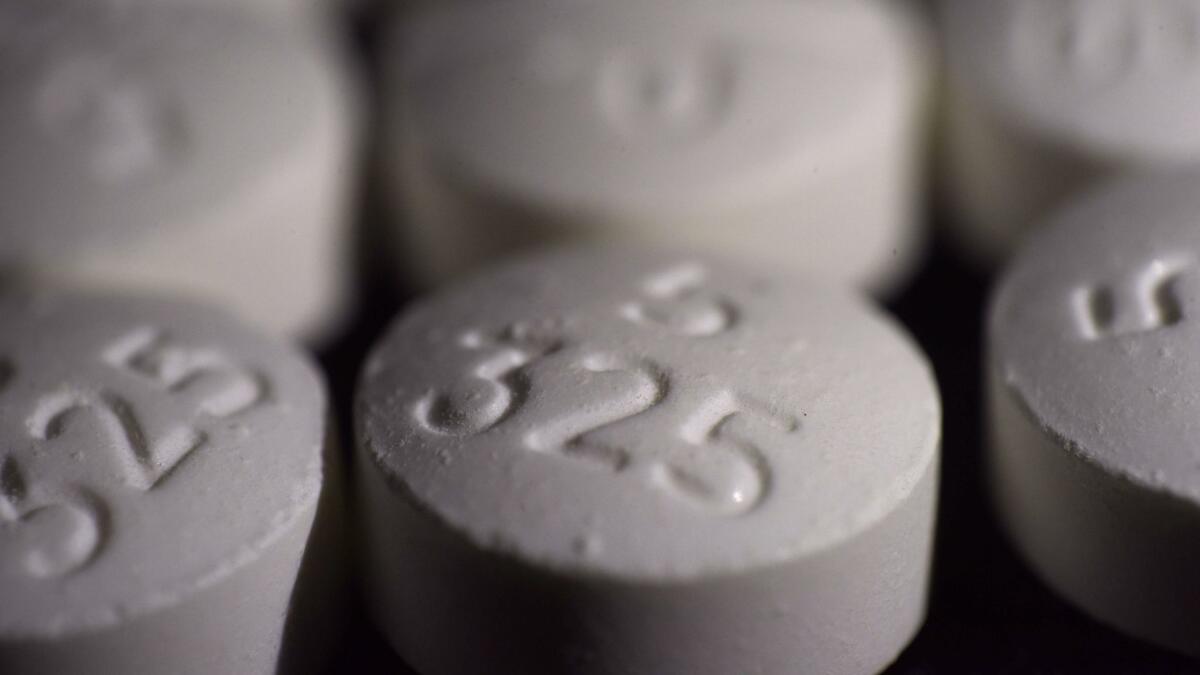Opinion: How to heal our sick system for managing pain and fighting the opioid epidemic

- Share via
To the editor: Jonah Goldberg may be correct to assume that complete and unregulated drug legalization could actually increase the number of addicts. (“Do we really want to stack Oxycontin next to the Jim Beam?” Opinion, Oct. 31)
Decriminalizing drug use but making drugs available only at treatment facilities, with treatment a condition of obtaining them, would put the drug dealers out of business. It would take drugs off the streets and offer those addicted the best chance of recovery.
It would also reduce the number of overdoses, since all drugs dispensed would be in a controlled setting.
Portugal is trying something like this, and the results are encouraging. One thing is for sure: Our current policy is a dead end.
Michael Gitter, M.D., Pacific Palisades
..
To the editor: My mother spent 10 years of her life battling breast cancer. Her last four months were spent in St. Vincent’s Hospital in Sydney, Australia.
Her nurses told me that when I was with her, she used much less morphine, so they made it easy for me to be with her as much as possible by putting a cot in her room for me. A palliative care specialist visited her at least twice daily to discuss and adjust her pain management program so she could maintain as much alertness as possible.
Why can’t there be a similar approach to pain relief in our country to help people avoid addiction? Whenever an opioid pain medicine is prescribed, a specialist should follow up to help that patient manage their pain control and, if necessary, intervene before addiction becomes a serious problem.
I see no good reason why we can’t do this in America.
Diane Mitchell, Hemet
..
To the editor: Calls for further study into the painkilling properties of cannabis are welcome. (“Thousands are dying. The president needs to do more than bluster on the opioid crisis,” editorial, Oct. 28)
But abundant evidence is already available. A recent literature review identifies 35 controlled clinical studies, involving 2,046 subjects, assessing the use of marijuana or cannabinoids in pain management — many of which were performed in California through UC San Diego’s Center for Medicinal Cannabis Research. In January, a review of more that 10,000 scientific studies by the National Academies of Sciences, Engineering and Medicine concluded that whole-plant cannabis is effective for the treatment of chronic pain in adults.
For some patients, cannabis clearly offers a safer and potentially more effective alternative to opioids. It is time for the administration to stop placing political ideology above the health and safety of the American public, and to acknowledge the well-established efficacy of medical marijuana in the treatment of chronic pain.
Paul Armentano, Washington
The writer is deputy director of the National Organization for the Reform of Marijuana Laws.
Follow the Opinion section on Twitter @latimesopinion and Facebook
More to Read
A cure for the common opinion
Get thought-provoking perspectives with our weekly newsletter.
You may occasionally receive promotional content from the Los Angeles Times.






